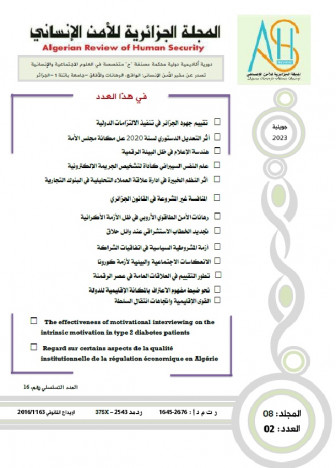The Legal Regulations for the Use of International Watercourses of Non-navigational Purposes -A Study under the Provisions of the 1997 United Nations Convention
DOI:
https://doi.org/10.59791/arhs.v6i1.594Keywords:
International watercourse, non-navigational uses, the principle of fair and equitable sharing, prevention of harm to others, peaceful resolution of conflictsAbstract
International watercourses have gained great importance in our present time, especially after the opening of the scientific and technological development that humans have experienced in the beginning of twentieth century: New prospects for non-navigational use, such as using water for drinking, for generating electricity, for irrigating agricultural crops or for industrial purposes which has made these international rivers the focus of the attention of the bordering countries , they are an indispensable factor to achieve their water security that is the main driver of the intended economic development of the countries situated at the highest point, the middle, or the bottom of an international watercourse. This is why; The United Nations has sought to establish international regulations of the Non-navigational uses of International Watercourses to be elaborated in the form of an international convention of 1997 which has a major role in codifying a set of principles, rights and obligations which guide principle of river States in negotiating to conclude subsequent agreements, whether bilateral or multilateral as an undertaking effort by the Organization to prevent any international conflict that May arise about the use of these shared international water resources for the maintenance of international peace and security




